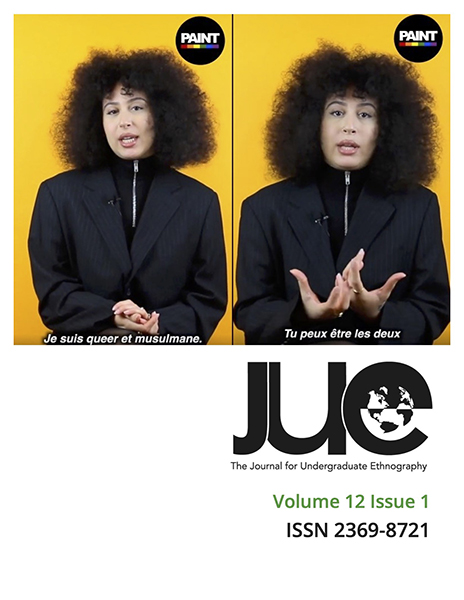Queer, Muslim, and Maghrebi: An Intersectional Analysis of Immigrant Identities in Contemporary France
DOI :
https://doi.org/10.15273/jue.v12i1.11312Mots-clés :
identity, gender, immigration, Muslim subjectivities, queernessRésumé
This study investigates the complex ways in which queer Muslim women with origins from the Middle East and North Africa (MENA) negotiate belonging and selfhood in France. Drawing on a three-month long digital ethnography, I employ an intersectional approach to explore the juxtaposition of “Muslim” and “lesbian/ bisexual” identities and to answer the question, “How do queer Muslim immigrant women negotiate and conceptualize their identities in contemporary France?” As a marginalized group within a marginalized minority of immigrants from the MENA region, queer Muslim immigrant women have been overlooked in scholarship, public discourses, politics, LGBTQ+ spaces, and religious spaces. This research addresses this gap by exploring the identity-related struggles of queer Muslim immigrant women in France and contributes to studies on Muslim subjectivities, immigration, and gender. Based on my findings, I argue that queer Muslim immigrant women in France negotiate their identities through reconfiguring “secular” and “Muslim” identities and queering religious texts. This negotiation takes place, in part, by using social media to connect with others who share a similar conceptualization of their identities within digital spaces.


